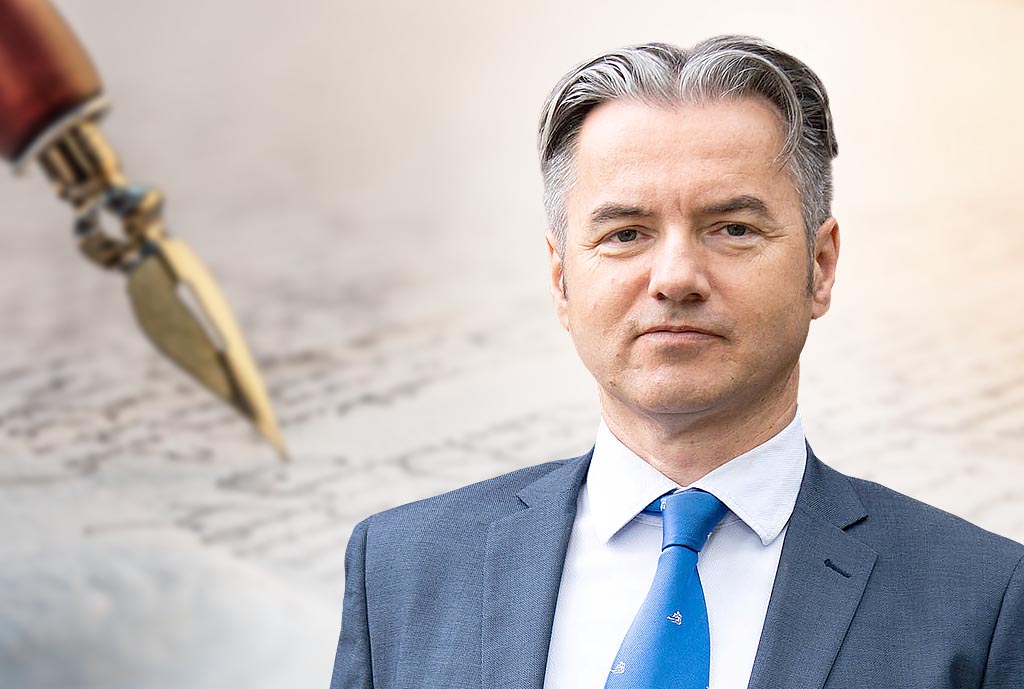By: Dr Metod Berlac
I spent a few days with my family in the south of Istria at the end of July and the beginning of August. My journalistic-editorial work, which mostly takes place in the office by the computer, was replaced by an active holiday: swimming, diving, cycling, and hiking in the peak heat.
However, I could not help myself and ended up reading several books in one go; from the book The End of Christian Civilisation by the French philosopher Chantal Delsol, Is Europe Christian? by French philosopher Olivier Roy, to three more specialised books on journalism. I will only mention the book by the late professor of journalism communication, media ethics, and media education, Manca Košir, titled The Harsh Time of Media. Although the book was published in 2003, it is still interesting to read. I was somewhat surprised that the FDV professor dedicated the book not only to “Slava Partlič (1951-2001), a journalist with vast knowledge and a steadfast ethical stance,” but also to “Jože Pučnik (1931-2003), my teacher of democracy.” In the book, she recalls how, at the end of the 1980s, she was among those who were “dissatisfied citizens of the Socialist Federal Republic of Yugoslavia”, among those who were “dissatisfied residents of the Socialist Republic of Slovenia”, among those who were “dissatisfied with the one-party political system and our non-government”. “And we were dissatisfied with the then Association of Journalists of Slovenia. We wanted different journalism, hence a different association of different journalists.”
Vinko Vasle, Slava Partlič, Zlata Krašovec, Manca Košir, and many other alternative figures were fed up with demands at that time for journalists to be socio-political workers, or as stated in Yugoslav journalist codes, adherents of Marxism and Leninism, “responsible to the state, participating in the building of a self-managed society, advocating the development of socialist self-management.” This changed only with the first Slovenian journalistic code in 1991, which established “true and unadulterated informing of the public” as the journalist’s fundamental duty. In the preamble to the Slovenian Journalists’ Code from 2002, it is stated that the primary guiding principle for journalists is “the public’s right to be as well-informed as possible.” “Public awareness is the foundation of the functioning of modern societies and is a prerequisite for the functioning of a democratic system.” Unfortunately, in the Association of Journalists of Slovenia (DNS) and the Union of Journalists of Slovenia (SNS), despite the well-worded code, they continued to remain “socio-political workers” and, through media construction of reality, largely continued to support parties that emerged from former socio-political organisations, consistently backing networks connected with the transitional left throughout the years of transition. Therefore, in 2007, together with some of the aforementioned alternatives, we established the Association of Journalists and Publicists (ZNP). The aim was to advocate for freedom of expression and the independence of journalism and publicism from political and financial centres of power, for ideological diversity and respect for worldview diversity, for parliamentary democracy, and for fair journalistic reporting in accordance with the Munich Declaration of the Duties and Rights of Journalists from 1971. How successful we are in this is another question, but we must strive daily in this direction through our journalistic and editorial work.
Well, during my vacation, a visit to Brijuni or Veliki Brijun Island was quite enlightening. I admit that it was my first time there. If years ago, in the greatest heat, I visited Goli Otok, where the so-called Informbiro prisoners, political prisoners, and opponents of Tito’s regime suffered, the story related to Brijuni is completely different. A special mark was left by the Austrian steel industrialist Paul Kupelwieser, who bought the archipelago at the end of the 19th century and built an elite tourist centre with hotels and accompanying tourist infrastructure on Veliki Brijun. Kupelwieser invited the Slovenian forestry expert Alojz Čufar, who became the island’s manager, and even the famous doctor, microbiologist, and Nobel laureate Robert Koch at the beginning of the 20th century to fight malaria. Koch overcame the malaria epidemic with the help of quinine. After World War II, the archipelago was taken over by the Yugoslav communist dictator Josip Broz Tito. He had a special vacation residence built for himself on the island of Vanga. As a supposed representative of the “working class”, he enjoyed the island like a great bourgeois, hosting politicians, friends, and international film stars. In short, Tito, as the red monarch, greatly enjoyed Brijuni, while his political opponents were breaking stones on Goli Otok…

